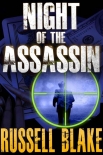The Cutthroat, Clive Cussler [best ereader for manga txt] 📗

- Author: Clive Cussler
Book online «The Cutthroat, Clive Cussler [best ereader for manga txt] 📗». Author Clive Cussler
“If this is him, too, he’s been killing girls for twenty years.”
“What do you suppose drives him?” Marion asked late at night. Bell had staggered in at two o’clock and sat with her in bone-weary silence.
“No motive of the sort we understand. He’s not killing for gain, or revenge, or love. He’s just doing what he feels like doing.”
“A wild animal.”
“I’ve been calling him a monster. The trouble is, believing he’s a monster doesn’t get me any closer to stopping him.”
“That would be the same as calling him evil, wouldn’t it?” Marion asked.
Bell agreed. “It’s not enough to think he is evil. In fact, it’s not even helpful.”
Marion said, “I’m beginning to understand why the newspapers keep referring to Jack the Ripper. He’s like an explanation for the unexplainable.”
“Even though we don’t know a thing about Jack the Ripper.”
“What do we know about him?” asked Marion.
Bell had already observed that the further back Research delved into newspapers, the more recent the memory of Jack the Ripper, the more their reporters invoked the connection. Now he asked Grady Forrer for information on the actual Jack the Ripper. Forrer had anticipated the request. Waiting for him was a thick packet of yellowed clippings from the Sun, the World, the Herald, and the Times. The top sheet’s headline read
CARNIVAL OF BLOOD CONTINUES
POLICE PARALYZED
“What do they boil down to?” Bell asked.
“Theories,” Grady told him, “all unfounded. Speculation, all imaginative. Conjecture, all fanciful. Guesses, all hopeless. Jack the Ripper is said to have been a nobleman or a surgeon or a Freemason, or a Polish radical, or a merchant seaman, or a leather worker, or a butcher. All that is known for sure about him is that eventually he stopped killing women in London. Although exactly when he stopped—whether 1888, or 1889, or 1891—is hotly debated. Also debated is why he stopped. Did he kill himself? Did he die of natural causes? Did he get bored? Did he immigrate to Australia? Did he flee to Brazil? Did he settle down to a quiet life in the country?”
“Do they debate whether he ever stopped at all?”
Grady shrugged. “The consensus seems to be that if he didn’t die, at some point he must have run out of steam.”
Bell slung the clippings under his arm and found an empty desk in the bull pen.
“Where is the Boss?”
“Went downstairs for supper.”
Downstairs was the palatial dining room of the Knickerbocker Hotel. An orchestra played. Every table was taken and conversation was animated. Bell waved to Enrico Caruso, who was dining with coloratura soprano Luisa Tetrazzini, but continued on a beeline toward Joseph Van Dorn, who was reading the menu at a corner table with his back to the wall. Bell eased onto the banquette, catty-corner to him, with his back to the other wall.
“Welcome,” said Van Dorn. “We haven’t broken bread in a long time. How are you?”
“Intrigued,” said Bell.
“Good Lord. We better order first.” Van Dorn looked up, and the table captain came running.
“Cocktail?” asked the Boss.
“Not yet,” said Bell.
Van Dorn ordered a Manhattan.
“With Bushmills Irish Whiskey, Mr. Van Dorn?”
“Always— You’re sure nothing for you, Isaac?”
“I am sure.”
Van Dorn ordered oysters and roast beef.
“And for you, Mr. Bell?”
“Pollo Tetrazzini.”
He waited for Van Dorn’s drink to arrive and toasted him back with water when the Boss said, “Mud in your eye.”
“O.K.,” Van Dorn said. “Spit it out. What intrigues you?”
“There are a hundred theories about Jack the Ripper.”
“At least.”
“The one I find most intriguing is that he stopped killing prostitutes in London twenty-three years ago when he escaped to America.”
“I’ve heard that.”
“What do you think? Did he come here?”
Van Dorn shook his head. “One version had him killing an old woman on the Bowery, if I recall. Didn’t make much sense. She wasn’t young and she wasn’t a prostitute.”
“I read about it,” said Bell. “It didn’t seem at all like his other crimes.”
“And yet you’re ‘intrigued.’”
“Not by that murder. No, what intrigues me is a question: Is it possible that the reason Jack the Ripper was never caught was he fled London in 1888 or 1889 and landed in America? Maybe in New York. Maybe Boston. And laid low for a while.”
“Far-fetched,” said Van Dorn. “How long do you think he laid low?”
“The first killing I’ve found that could be him was in Brooklyn in 1891. But the question is, is he killing again?”
“Now? 1911? That is far-fetched.”
Bell agreed it was far-fetched.
Van Dorn’s oysters were served on a bed of ice. He heaped a few of them on Bell’s bread and butter plate. “That’s exactly the kind of speculation we get in the newspapers.”
“Agreed,” said Isaac Bell, and challenged his own question: “Besides, wouldn’t the Ripper be too old by now?”
Joseph Van Dorn raised a bushy red eyebrow. “Too old?” he asked silkily.
“We’re talking about a murderer who committed his crimes twenty-three years ago.”
Van Dorn said, “I suppose that from your perspective, a man past forty looks ancient.”
Bell said, “You and I both know that past age forty, criminals who haven’t been jailed tend to slow down.”
Van Dorn signaled the waiter. “You see that soup ladle on the sideboard?”
“I beg your pardon, Mr. Van Dorn?”
“That big long one.”
“Yes, sir. I see it.”
“Bring it here.”
The mystified waiter delivered the ladle.
Van Dorn asked Bell, “Tell me, young fellow, how would you characterize the poor devils who will soon not see the sunny side of fifty again? Decrepit? Flea-bitten? Feeble?”
With a cold smile for his Chief Investigator, the Boss hefted the heavy silver serving tool in his powerful hands and tied the handle in a knot.
“Too old?”
Bell swept to his feet in a fluid motion as swift as it was graceful.
“Thank





Comments (0)